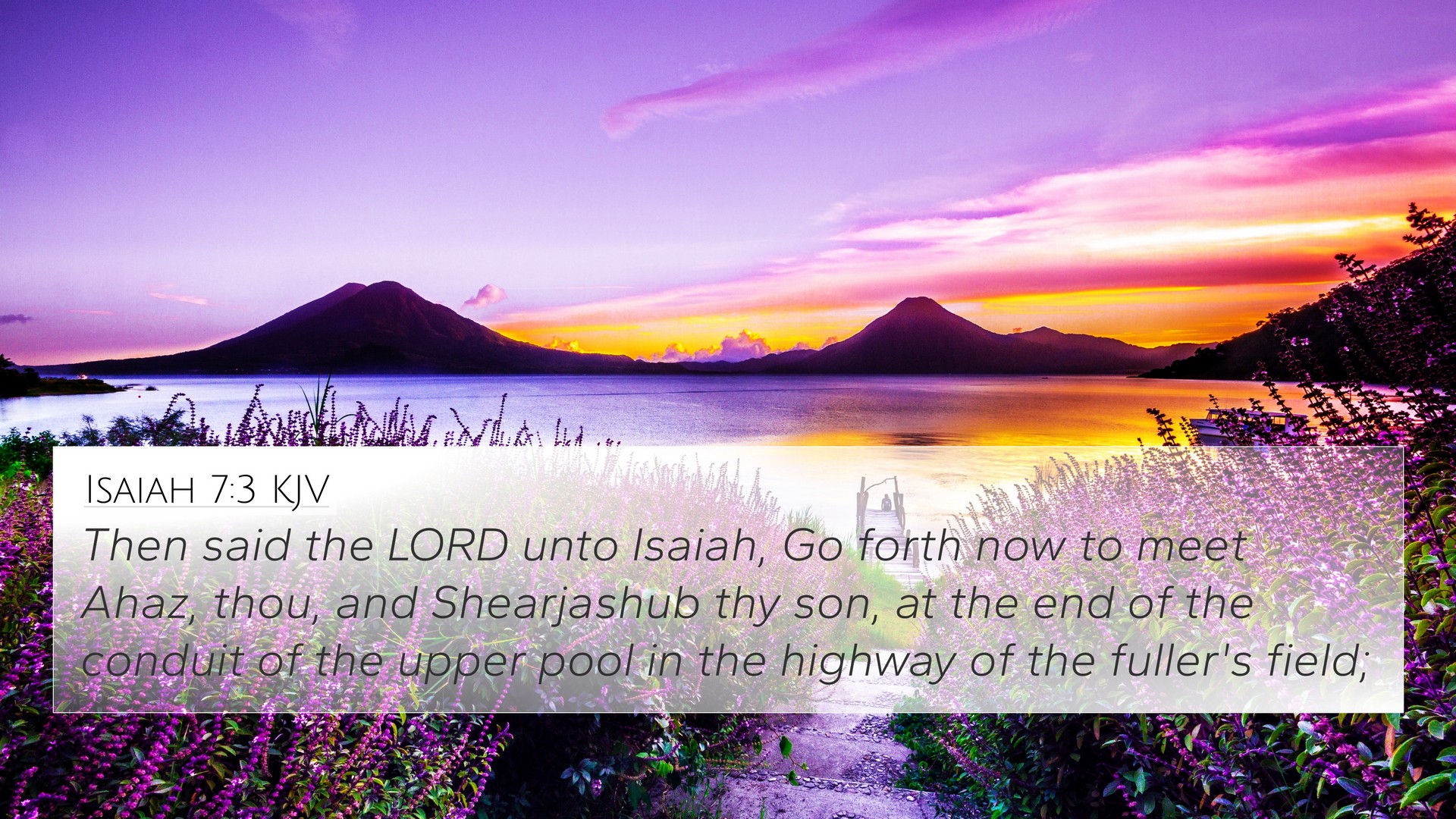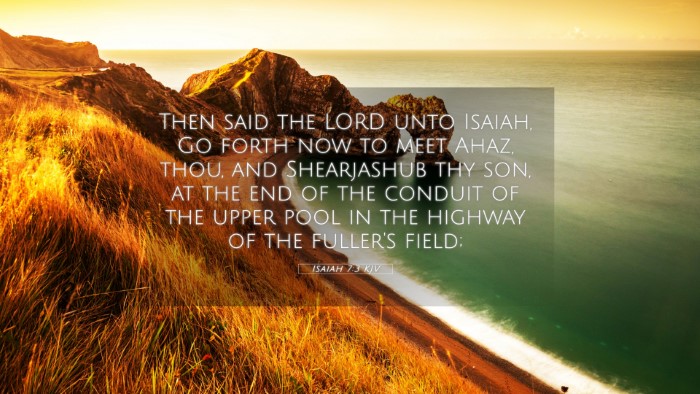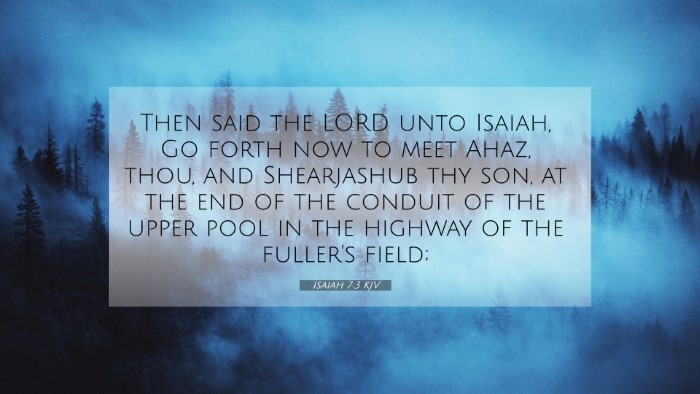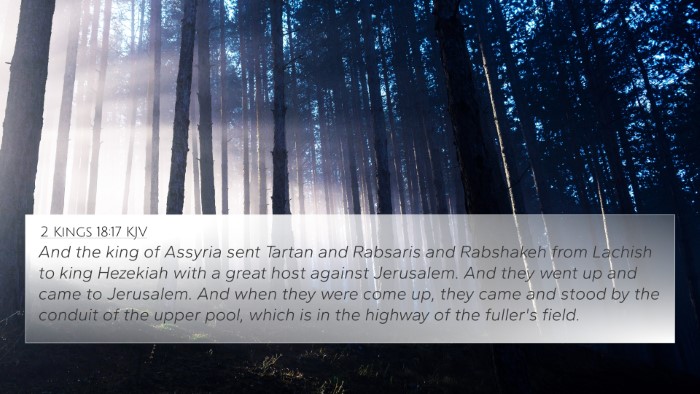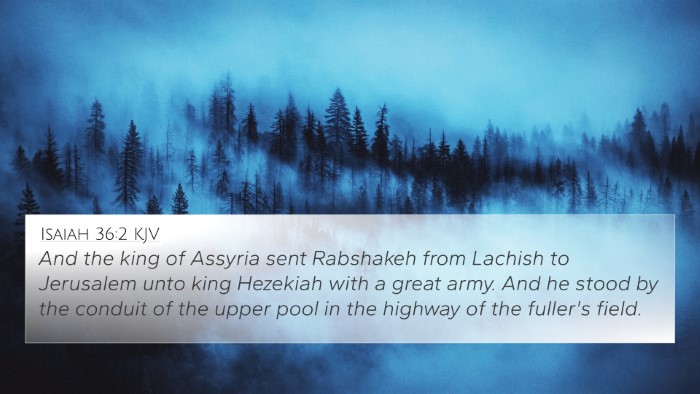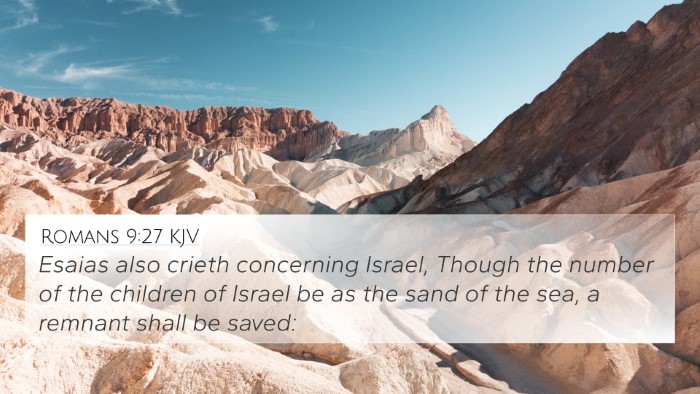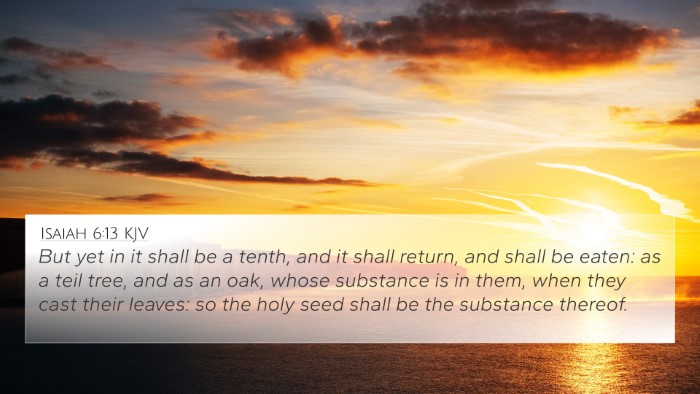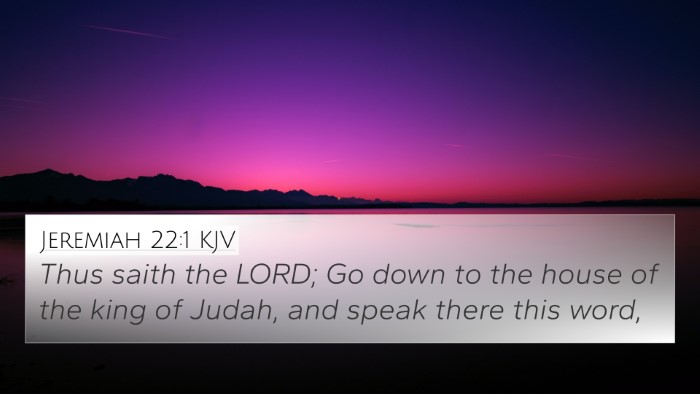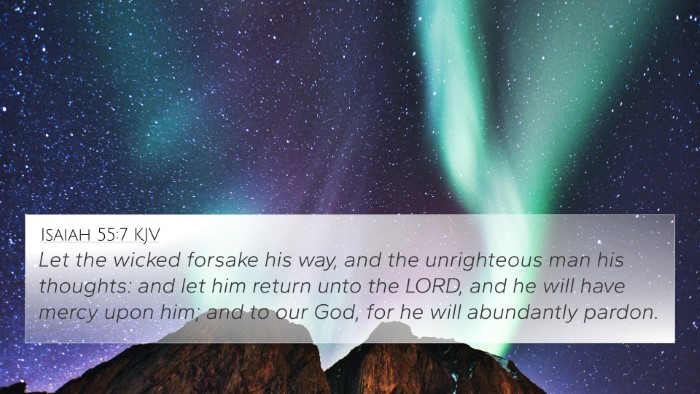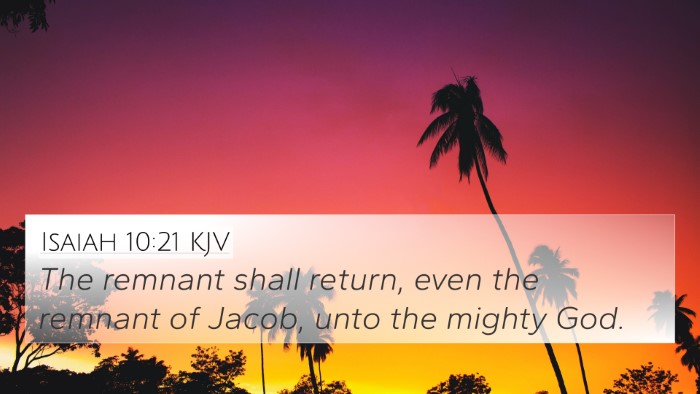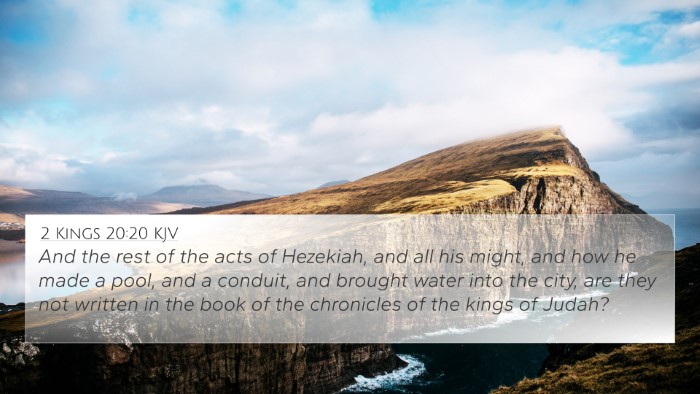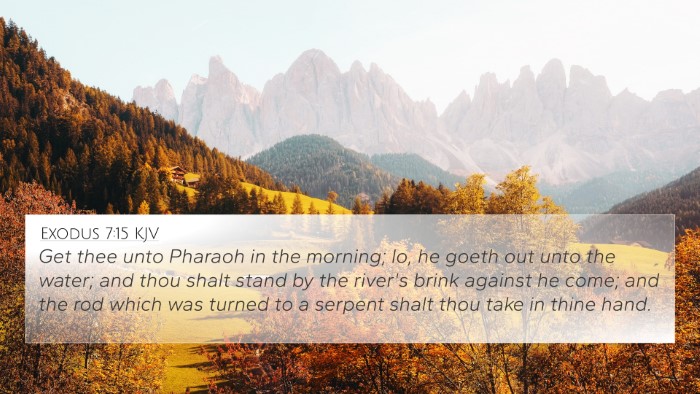Understanding Isaiah 7:3
Isaiah 7:3 states, "Then said the Lord unto Isaiah, Go forth now to meet Ahaz, thou, and Shear-jashub thy son, at the end of the conduit of the upper pool in the highway of the fuller's field." This verse introduces God’s directive to Isaiah to meet King Ahaz during a time of impending crisis in Judah. This brief passage is packed with meanings and implications that can be drawn from various public domain commentaries.
Contextual Background
To understand this verse, it is crucial to examine the historical context. King Ahaz is facing a threat from the allied forces of Israel and Aram. The prophecy delivered by Isaiah seeks to fortify Ahaz's faith amidst his fears, emphasizing God’s sovereignty and control over geopolitical affairs.
Commentary Insights
Various commentators provide deeper insight into this chapter:
- Matthew Henry: Highlights God's assurance to His people through prophetic messages. He emphasizes that even in times of terror, God sends His prophets to guide and instruct leaders, urging them to trust in divine providence.
- Albert Barnes: Notes the significance of the meeting place – the conduit of the upper pool. This indicates a strategic location where water supply and fortification are symbolic of spiritual refreshment and security provided by God.
- Adam Clarke: Expands on the name of Shear-jashub, which means "a remnant will return," symbolizing hope and restoration even in dire circumstances. This reflects the overarching theme of God's mercy and the promise of deliverance to a remnant of Israel.
Thematic Bible Verse Connections
This verse can be linked to several other Bible verses that relate to the themes of trust in God and His sovereignty:
- Isaiah 9:6: Foretells the coming of a child who will establish peace, reinforcing the hope amidst despair.
- 2 Kings 16:1-2: Provides more context about the reign of Ahaz, underscoring his lack of faith and reliance on alliances with foreign nations.
- Psalms 46:1: "God is our refuge and strength, a very present help in trouble," echoing the assurance of God’s protection during turbulent times.
- Matthew 1:23: References the Emmanuel prophecy, linking the Old Testament assurances with the New Testament fulfillments, emphasizing God's continuous presence with His people.
- Hebrews 11:1: Defines faith as the assurance of things hoped for, connecting to how Ahaz was encouraged to remain faithful despite visible threats.
- Zechariah 8:3: Asserts God's intention to return to Zion, showing His commitment to His people despite their circumstances.
- Romans 8:31: "If God is for us, who can be against us?" highlights the essence of divine support that Isaiah sought to reassure King Ahaz with.
Tools for Bible Cross-Referencing
To deepen the understanding of interconnected verses, several tools for Bible cross-referencing can be utilized:
- Bible Concordance: A comprehensive tool that lists words found in the Bible, providing locations of similar themes.
- Bible Cross-reference Guide: Helps readers find related scriptures that share thematic connections.
- Cross-reference Bible Study: A method of studying Scriptures by exploring connections and implications between verses.
- Comprehensive Bible Cross-reference Materials: Various study Bibles include built-in cross-references that guide users through interrelated texts.
Inter-Biblical Dialogue
Isaiah 7:3 showcases the interplay between prophetic literature and historical events in ancient Israel. The connections gleaned from this verse contribute significantly to our understanding of God's plan throughout the biblical narrative. It foreshadows the New Testament revelations of Jesus Christ as the fulfillment of God's promises and the ultimate assurance for future hope.
Conclusion
In summary, Isaiah 7:3 serves as a pivotal point in the prophetic ministry of Isaiah. It emphasizes themes of divine intervention, the importance of faith, and the assurance of God's plans for His people amid adversity. By engaging in comparative Bible verse analysis, we enhance our understanding of God's persistent outreach to humanity throughout biblical text.
